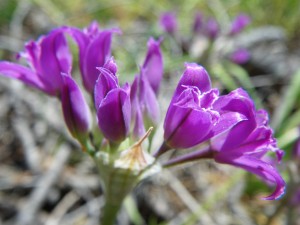Saturday March 15, 4–5:30 p.m., Emmanuel Parish Hall
— from Russel Barsh —
Kwiaht and the Indian Island Marine Health Observatory open the 2014 research and education season at Indian Island with a third annual Tides of March event for Orcas families and children at Emmanuel Parish Hall overlooking Indian Island, from 4:00 pm to 5:30 pm on Saturday afternoon March 15. Admission is free.
Enjoy a narrated slideshow of Indian Island’s colorful native wildflowers and sea slugs; briefings by volunteers and students on upcoming research activities from plankton blooms and eelgrass to seahorses and seabirds; a keynote presentation on emerging issues in marine ecology; and refreshments. Guests will also have one more chance to join the Indian Island Adopt-A Species program, and to help fund an Oystercatcher-Cam.
This year the Tides of March will highlight marine microbiology. “Only recently have we appreciated the diversity and sheer size of the marine microbiome,” says Kwiáht director Russel Barsh. “Viruses and bacteria may account for a majority of the biomass in the world’s oceans and play essential roles in nutrient recycling, maintaining atmospheric oxygen levels, moderating climate change, and regulating the abundance and diversity of plants and marine animals through contagious diseases.”
Barsh points to recent evidence that threatened marine species such as herring and salmon are having difficulty recovering because of disease, and says that Indian Island volunteers have begun screening local sea stars for a wasting syndrome that has severely reduced some sea star populations near Vancouver, B.C. and elsewhere on the west coast.“ A few affected individuals have been documented at Indian Island thus far, less than one percent of the animals we examined, but monitoring will continue.”
Toxic household products and pharmaceuticals in human waste can affect the marine microbiome, Barsh adds. His students have found antibiotic-resistant bacteria in waste water and in sediments from the bottom of Fisherman Bay. Marine microbes may also respond in unexpected ways to ocean acidification. “Some organisms are very likely to thrive in a more acidic ocean, but they are not necessarily friendly to fish or humans—potentially toxic dinoflagellates, for example.”
Kwiáht recently acquired a microplate reader (scanning spectrophotometer) that can make very sensitive measurements of hundreds of different chemical compounds in the marine environment, including algal toxins and pharmaceuticals. It will be available for projects designed by marine science classes at Orcas schools.
Learn more at the Tides of March!
**If you are reading theOrcasonian for free, thank your fellow islanders. If you would like to support theOrcasonian CLICK HERE to set your modestly-priced, voluntary subscription. Otherwise, no worries; we’re happy to share with you.**








